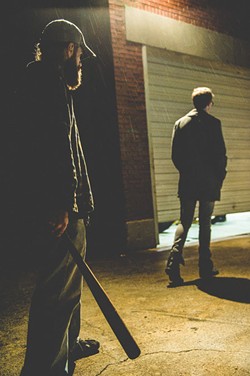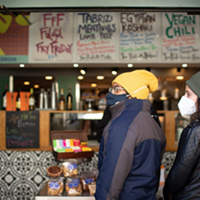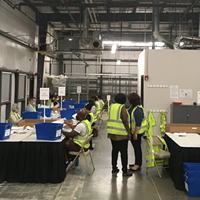The unifying power of Amendment One
How it managed to bring people together despite constitutionalizing discrimination
By Joanne Spataro @lookitsjoanneDonielle Prophete thought her transgender sibling, Toni Alston, was safe in Charlotte. Her younger brother, as Prophete still calls her, was able to live and work while living as a woman, wearing Diana Ross-sized wigs and floral shirts. But in 2010, Alston was shot and killed at her west Charlotte home at the age of 44. The killer has never been found, although Prophete continues to search.
Since Alston's death, Prophete has become an outspoken straight supporter of the local LGBT community, speaking at the Transgender Day of Remembrance in Charlotte in November. She also fought alongside her gay and lesbian friends against Amendment One.
"It's sad we have so much going on in the world and we have this much hate and anger because of who somebody chooses to be with," Prophete says.
Amendment One went into effect today, Jan. 1. It constitutionalizes the definition of marriage as a union between a man and a woman and prohibits domestic partners from receiving benefits from the state. Though many within the LGBT community consider its passage a loss, they're also aware of its unification power: the fight to stop the amendment brought straight and LGBT advocates together.
In August, three months after the amendment was approved, 30 straight allies and LGBT advocates drowned out the hate speech of Christian anti-LGBT protesters at Pride Charlotte. Canyonwalker Connections, a pro-LGBT group that tries to unify the church and LGBT Christian community, and other volunteers formed a "Wall of Love" in front of the protesters. Only three pro-LGBT supporters were on hand in 2011.
Steven Knight was at last year's Pride festival. Raised in an evangelical, anti-gay environment, as an adult he studied the Bible more deeply to see if it really shunned gays and lesbians. He started making gay friends and was fired from his job at Serving in Mission, an evangelical ministry, in 2009.
He now calls himself a progressive evangelical Christian.
"A number of us straight allies wanted to be out there ... to let our neighbors and our friends know we love them and God loves them just as they are and to not let the street preachers have the last word about God and homosexuality," Knight says. "We had really failed our LGBT neighbors by allowing that amendment to pass."
Straight Allies Charlotte, a volunteer-based group, raised $30,000 for The Coalition to Protect North Carolina Families, the statewide group campaigning against Amendment One. The money funded lawn signs, public-service announcements and events. Co-founders Chris McLeod and Krista Tillman say they focused on engaging pro-LGBT straight people and encouraged them to vote against the amendment because it would write discrimination into the state constitution and North Carolina's business and cultural community.
"There are lots of people in the community who have gay friends and family members who would naturally be opposed to Amendment One," McLeod says. "We wanted to identify reasons for, if you didn't have a connection to the LGBT community, why you should vote against Amendment One."
About 61 percent of those who voted approved the amendment. Eight counties voted against it, including Mecklenburg.
After May, the Charlotte City Council continued to work on an outstanding plan to offer domestic partnership benefits to citywide same-sex employees, knowing full and well it could lead to legal action from the state. They approved the plan on June 25, and it went into effect for the 2013 fiscal year. The city also added sexual orientation to its equal employment opportunity policy, stating that a potential or current employee cannot be discriminated against based on his or her national origin, race, gender, or, now, sexual orientation.
The state's hate-crime statute does not protect against gender-identity or sexual orientation-based violence, covering only violence affiliated with race, color, religion and nationality. The FBI's 2011 hate crime statistics, the most recent year available, show sexual orientation tied with religion as the second-most prevalent hate crime in North Carolina. The first is racially motivated. Nationally, hate crimes based on sexual orientation are the second most frequent behind race.
Matthew Alexander and works in gay-friendly Plaza Midwood but lives in Concord, really only sleeping and eating there, he says. He is disappointed by how rural areas, including Iredell County, are as — if not more — dangerous for LGBT people than they were before Amendment One.
"People who are against [Amendment One] are more direct about their position against it and the people who are for it are more open and direct about their position," Alexander says.
In the spring, the Supreme Court is expected to review Proposition 8, which banned gay marriage in California's constitution. If the court rules the measure is unconstitutional, it may set a precedent in other states with similar bans — like North Carolina.
For now, Alexander is thankful he lives in an increasingly more welcoming part of the state.
"I feel safer in Charlotte than anywhere else," he says.
Speaking of...
Latest in News Feature
More by Joanne Spataro
-
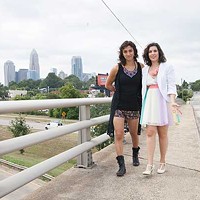
Everybody Needs Somebody, Even the Nacho Slobs
Feb 8, 2017 -

Batman gets spanked at Purgatory
May 27, 2015 -
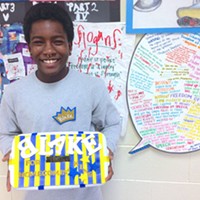
His name was Blake
Mar 25, 2015 - More »
Calendar
-

Wine & Paint @ Blackfinn Ameripub- Ballantyne
-

Queen Charlotte Fair @ Route 29 Pavilion
-

NEW WINDOW GALLERY-Pat Rhea-ACRYLIC PAINTINGS-April 05-30 2024 VALDESE, NC 28690 @ New Window Gallery/Play It Again Records
- Through April 30, 12 p.m.
-

TheDiscountCodes
-

Face to Face Foundation Gala @ The Revelry North End
-
Esports in Charlotte Takes Off: A Guide to Virtual Competitions and Betting
-
Canuck in the Queen City 7
A Canadian transplant looks back at her first year as a Charlotte resident
-
Homer's night on the town 41
If you drank a shot with the Knights mascot on Sept. 20, you were basically harboring a fugitive

